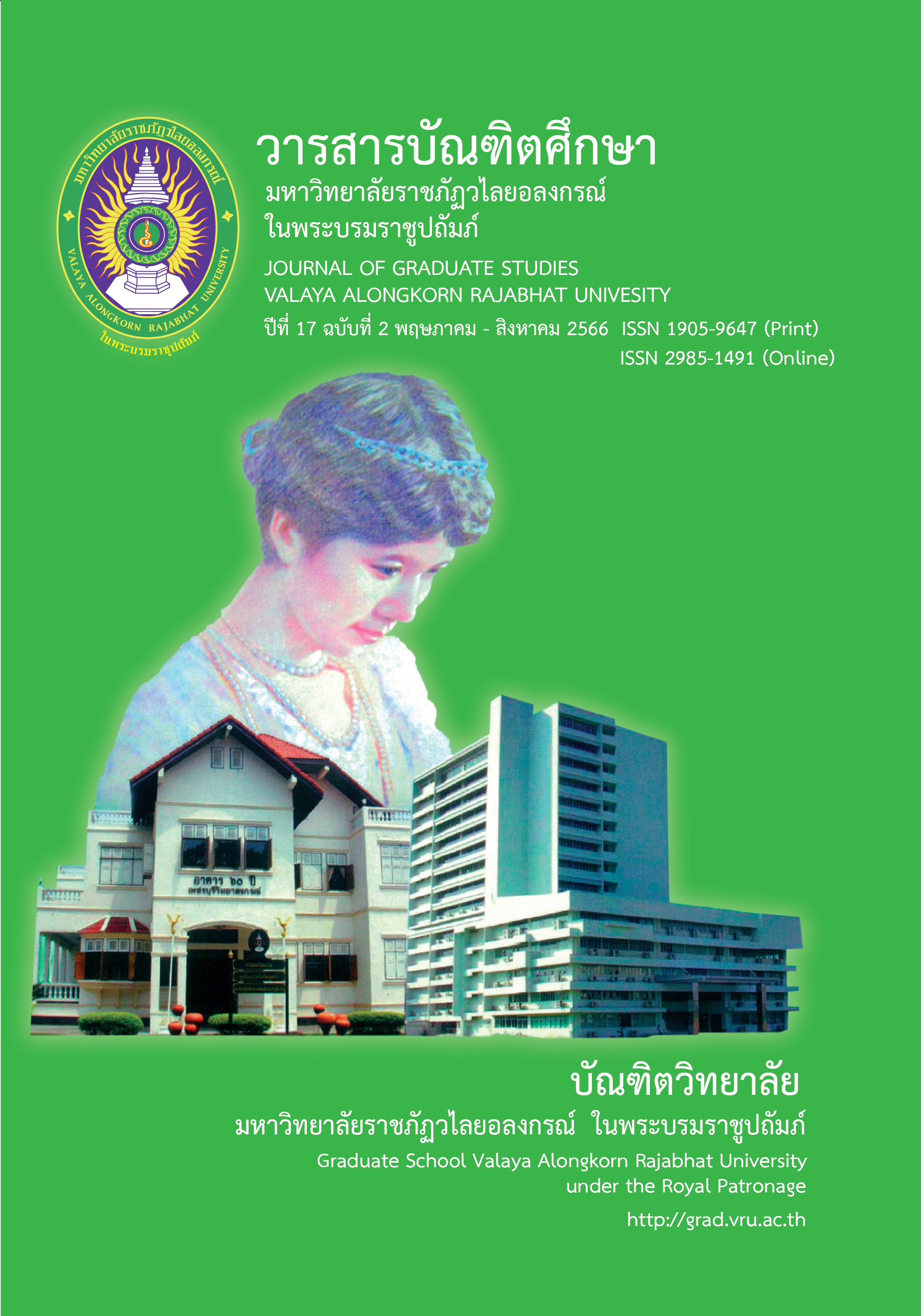THE FINANCIAL TECHNOLOGY ACCEPTANCE COMPONENTS OF COMMERCIAL BANKS IN THAILAND
Main Article Content
Abstract
This research is aimed to study the financial technology acceptance components of commercial banks in Thailand. Data were collected from 388 samples who had used banking technology service in Thailand. Convenience sampling was used, data were analyzed using descriptive and inferential statistics such as frequency, percentage, and Exploratory Factor Analysis (EFA).
The results found that the factor loading of the financial technology acceptance components which reflected from the values of the 41 variables. These variables can be divided into 14 groups of variables (components). There are 12 components that have a value of factor loading, variance, and coefficient of variation above 0.7. This shows that the correlation between variables and components is greater than 70%. Most of the variables accounted for more than 70% of the total variance, and each variable had a correlation between groups of more than 70%. The components including Perceived Number of Peers, Perceived Number of Cross-Platform, Perceived Ease of Use, Perceived Usefulness, Perceived Security, Perceived Assurance, Attitude toward technology, Descriptive Norm, Junctive Norm, Subjective Norm, Behavior Intention, and Usage Behavior. Two variable groups have a value of factor loading, variance, and coefficient of variation above 60% including Perceived Complementarity and Usage Decision of financial technology.
Article Details

This work is licensed under a Creative Commons Attribution-NonCommercial-NoDerivatives 4.0 International License.
บทความทุกเรื่องได้รับการตรวจความถูกต้องทางวิชาการโดยผู้ทรงคุณวุฒิ ทรรศนะและข้อคิดเห็นในบทความ Journal of Global of Perspectives in Humanities and Social Sciences (J-GPHSS) มิใช่เป็นทรรศนะและความคิดของผู้จัดทำจึงมิใช่ความรับผิดชอบของบัณฑิตวิทยาลัย มหาวิทยาลัยราชภัฏวไลยอลงกรณ์ ในพระบรมราชูปถัมภ์ กองบรรณาธิการไม่สงวนสิทธิ์การคัดลอก แต่ให้อ้างอิงแหล่งที่มา
References
Bank of Thailand. (2020). Payment transactions via mobile banking and Internet banking services. Retrieved from https://www.bot.or.th/App/BTWS_STAT/statistics/BOTWEBSTAT.aspx?reportID=688&language=TH
Bashir, I. & Madhavaiah, C. (2014). Determinants of young consumers' intention to use internet banking services in India. vision: The Journal of Business Perspective. 18(3), 153-163.
Boonyu, S. & Ramnut, S. (2019). A model of casual antecedents affected on using financial technology of SME Bank Users in Ratchaburi Province. Western University Research Journal of Humanities and Social Science. 5(3), 299-314.
Chunhachinda, P. (2020). Digital transformation and the progress of Thailand’s fintech. Suthiparithat Journal. 33(106), 251-264.
Meyliana, M. Fernando, E. & Surjandy, S. (2019). The influence of perceived risk and trust in adoption of fintech services in Indonesia. CommIT (Communication and Information Technology) Journal. 13(1), 31-37.
Nurittmont, W. (2019). ʻitthiphon khō̜ng kānyō̜mrap theknōlōyī thī mī tō̜ phrưttikam kānchai bō̜rikān thurakam thāng kānngœ̄n phān ʻǣp phlikhēchan bon thōrasap khlư̄anthī [The influence of technology acceptance on financial transaction service behavior through mobile phone application]. Journal of Interdisciplinary Research: Graduate Studies. 8(2), 189-199.
PWC. (2017). PWC Global fintech report 2017. Insights from PwC’s global asset and wealth management practice. Exploring the impact of FinTech. PwC AWM Insights January 2017. London: PricewaterhouseCoopers Publishing.
Qasim, H. & Abu-Shanab, E. (2016). Drivers of mobile payment acceptance: The impact of network externalities. Information Systems Frontiers. 18(5), 1021-1034.
Shaikh, I., Qureshi, M. A., Noordin, K., Shaikh, J., Khan, A., & Shahbaz, M. (2020). Acceptance of Islamic financial technology (FinTech) banking services by Malaysian users: an extension of technology acceptance model. Foresight, 22(3), 367-383.
Yousafzai, S., Foxall, G. & Pallister, J. (2007). Technology acceptance: a meta-analysis of the TAM: Part 1. Journal of Modelling in Management. 2(3), 251-280.


